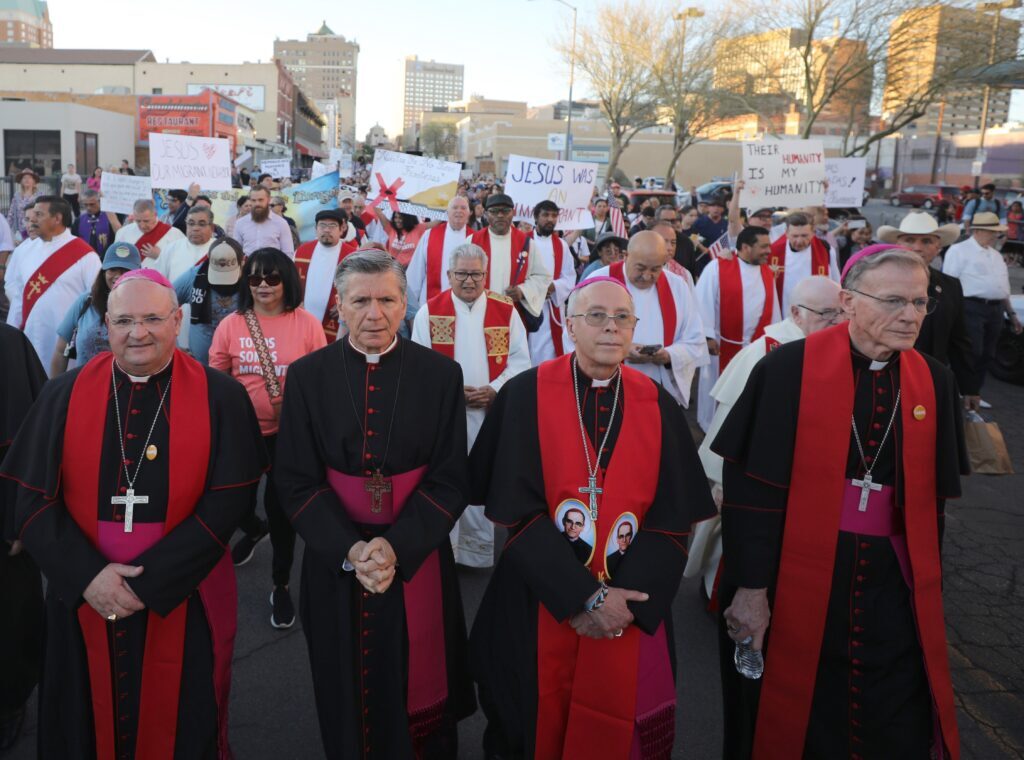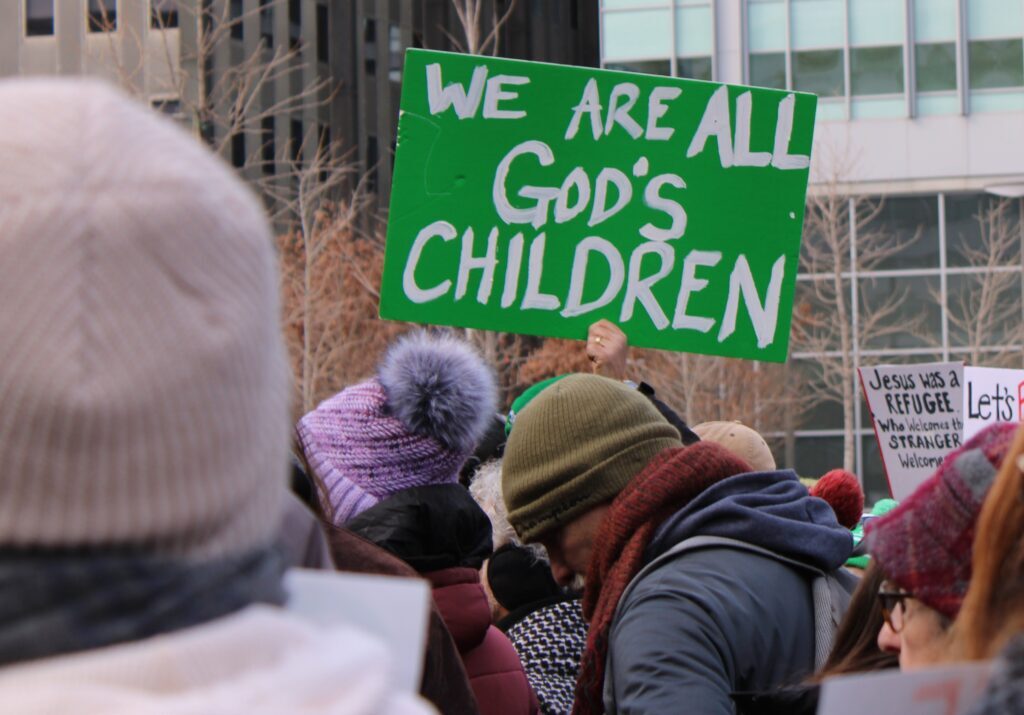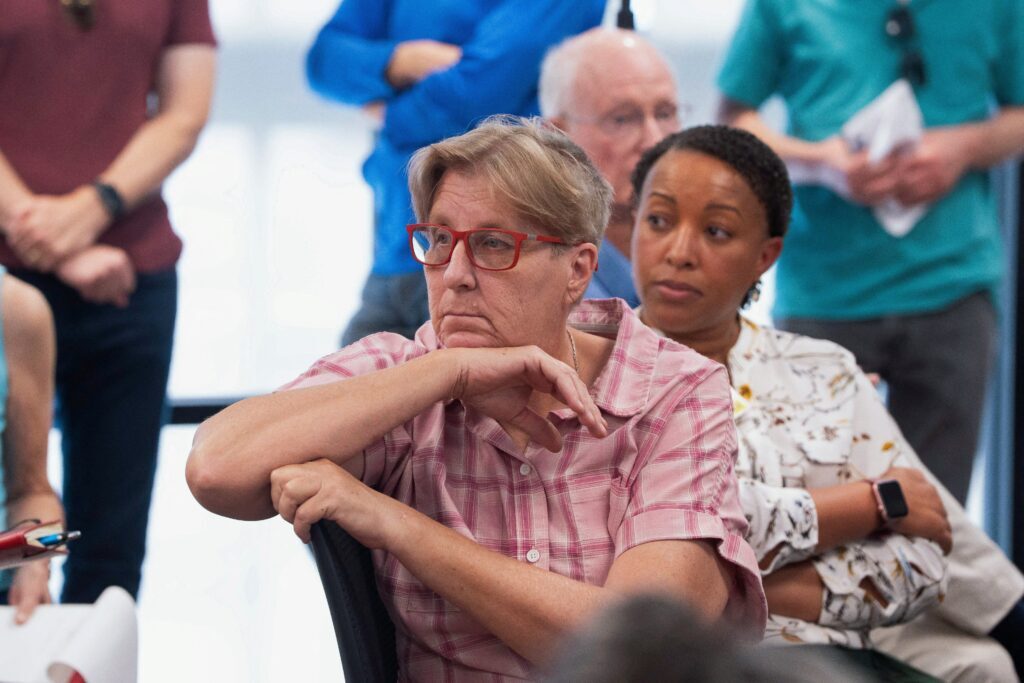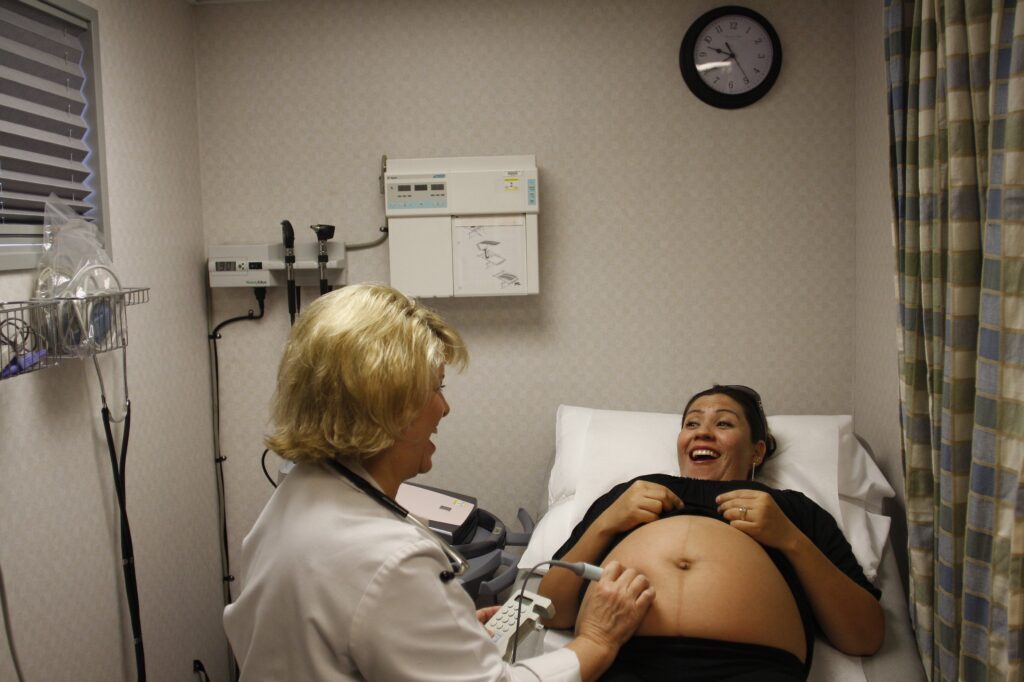WASHINGTON (OSV News) — Twenty U.S. Catholic bishops have signed onto an interfaith effort opposing the One Big Beautiful Bill Act, which would enact key provisions of President Donald Trump’s legislative agenda on taxes and immigration, calling it a “moral failure.”
The Senate is drafting its version of the budget legislation that House Republicans passed in May under rules that would allow it to pass with a simple majority and avoid a filibuster. Trump has called for the Senate to pass the bill by July 4.
A letter from more than 40 faith leaders of several faith traditions — promulgated by Archbishop John C. Wester of Santa Fe, New Mexico, on June 26 — urged senators to reject the One Big Beautiful Bill Act.
“We, the undersigned faith leaders, write to ask for your opposition to HR 1, the budget reconciliation legislation currently being considered by the U.S. Senate,” the letter said. “We believe that the changes made by the U.S. Senate to the legislation are insufficient and do not significantly mitigate its adverse effects.”
Diverse Voices Raised over Trump’s ‘Big Beautiful Bill’
Archbishop Wester, who was joined by 19 U.S. bishops in signing the letter, told OSV News they thought it would be “a good idea for faith leaders to come together to express our deep and profound concern about this bill, because it’s going to hurt and harm so many people, particularly immigrants and families and those who depend on the government to assist them for their medical needs.”
“This (legislation) is really violating our Catholic social teaching in terms of a preferential option for the poor, welcoming the stranger in our midst, the common good, subsidiarity,” he said. “It’s a very draconian kind of a bill that seems to have little or no regard for the people that will be affected by it.”

The letter objected to the One Big Beautiful Bill Act allocating millions of dollars to the government’s mass deportation campaign, expressing concern that campaign would also infringe upon their houses of worship.
“We have already witnessed a reduction in attendance at many of our religious services in our denominations, as the threat of enforcement has deterred many families from practicing their faith,” the letter said.
It also objected to “severe cuts in healthcare coverage and food assistance to millions of both low-income citizens and legal residents, including asylum-seekers and refugees.” It argued those cuts would drive them “deeper into poverty.”
“From our various faith perspectives, the moral test of a nation is how it treats those most in need of support. In our view, this legislation will harm the poor and vulnerable in our nation, to the detriment of the common good,” the letter said. “Its passage would be a moral failure for American society as a whole.”
Among the bishops leading dioceses joining Archbishop Wester were Cardinal Robert W. McElroy of Washington; Cardinal Joseph W. Tobin of Newark, New Jersey; Bishop Steven Biegler of Cheyenne, Wyoming; Bishop John P. Dolan of Phoenix; Archbishop Paul D. Etienne of Seattle; Bishop Joseph R. Kopacz of Jackson, Mississippi; Bishop Michael M. Pham of San Diego; Archbishop Mitchell T. Rozanski of St. Louis; Bishop Jaime Soto of Sacramento, California; Bishop John Stowe of Lexington, Kentucky; Bishop Joseph J. Tyson of Yakima, Washington; and Archbishop Edward J. Weisenberger of Detroit. Retired Bishop Nicholas DiMarzio of Brooklyn, New York, several other auxiliary bishops, and representatives of the Sisters of Mercy of the Americas rounded out the Catholic signatories on that letter, which also included representatives from Protestant, Jewish and Islamic faith traditions.

The diversity of signatories, Archbishop Wester told OSV News, “are very reflective of the deep-felt concern among so many people across the country for the immigrants and for our fellow citizens who will suffer because of this bill.”
US Bishops Conference Raises Substantial Concerns
In a separate letter issued the same day through the U.S. Conference of Catholic Bishops, the conference commended senators for “provisions that promote the dignity of human life and support parental choice in education” in that legislation. But it also made clear “drastic changes” to the legislation are needed to prevent “provisions that will harm the poor and vulnerable.”
In a statement on the One Big Beautiful Bill Act, Archbishop Timothy P. Broglio of the U.S. Archdiocese for the Military Services, president of the USCCB, said, “Congress must be consistent in protecting human life and dignity.”
“As Pope Leo XIV recently stated, it is the responsibility of politicians to promote and protect the common good, including by working to overcome great wealth inequality,” Archbishop Broglio said. “This bill does not answer this call. It takes from the poor to give to the wealthy. It provides tax breaks for some while undermining the social safety net for others through major cuts to nutrition assistance and Medicaid. It fails to protect families and children by promoting an enforcement-only approach to immigration and eroding access to legal protections. It harms God’s creation and future generations through cuts to clean energy incentives and environmental programs.”
Citing the letter the conference sent to senators, Archbishop Broglio said he urged them to “think and act with courage and creativity to protect human dignity for all, to uphold the common good, and to change provisions that undermine these fundamental values.”

The letter from the bishops’ conference said that it supports provisions of the One Big Beautiful Bill Act that would strip some taxpayer funds from Planned Parenthood, one promoting school choice, and another they said would incentivize charitable giving and development.
However, they objected to Medicaid and SNAP cuts, cuts to environmental efforts, and to an increase in funds for “punitive” immigration policies.
“We urge you to remain consistent in protecting human life and dignity by pursuing a better way forward that protects rather than harms poor and vulnerable people,” the letter said. “Before advancing this bill, we ask you to think and act with courage and creativity to preserve human dignity and uphold the common good and to change the provisions that undermine these fundamental values.”
Asked about the USCCB’s letter to senators, Archbishop Wester said he was “pleased that the USCCB did list in their letter their objections to the bill.”
“I think that was a good thing from my perspective,” he said, adding that his own personal view, and that of the signatories on the interfaith letter, is that “this bill is so awful that it has to be rejected out of hand.”

Impact of ‘Big Beautiful Bill’ on Abortion
Meanwhile, several pro-life groups are urging senators to approve the One Big Beautiful Bill Act based on the provision that would strip some funds from Planned Parenthood. While Planned Parenthood has warned the decision could lead to the closure of 200 out of its 600 nationwide clinics, it is not clear how many lives would be saved from abortion as a result.
A #WeCount report published in June shows abortion in the U.S. has actually increased after the Dobbs v. Jackson Women’s Health Organization decision, in part due to an uptick in abortion facilitated by telehealth abortion providers.
Asked about how he would respond to those who support the One Big Beautiful Bill Act due to that provision, Archbishop Wester said abortion is “a terrible scourge.” But he emphasized if more people are “forced deeper into poverty,” it would likely further increase the abortion rate.
“We know there’s a direct correlation between poverty and abortions,” Archbishop Wester said. “In my estimation, this bill is probably going to increase the gap.”
Abortion in the U.S. is heavily correlated with poverty and low incomes. Guttmacher Institute, which supports legal abortion, reported 75% of women seeking abortion were low-income, with 50% below the federal poverty line. About six out of 10 women seeking abortion were already mothers. The top concerns reported included not being able to afford another child, losing the ability to work or continue education, or having to care for dependents or other family responsibilities.
Republicans hold 53 seats in the Senate, and can only afford three defections from their members if they are to pass the One Big Beautiful Bill Act without any Democratic support.
Kate Scanlon is a national reporter for OSV News covering Washington. Follow her on X @kgscanlon.




